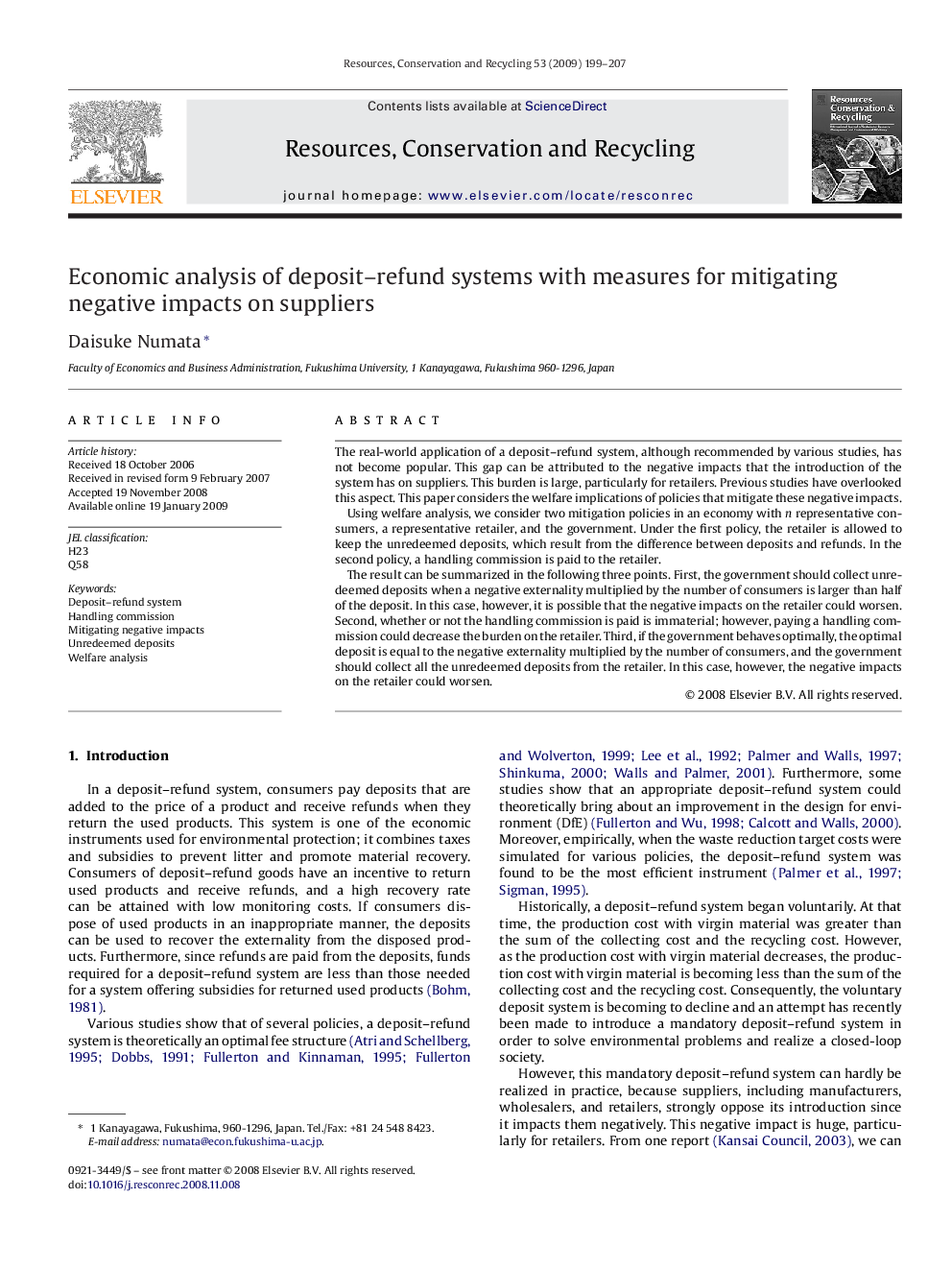| Article ID | Journal | Published Year | Pages | File Type |
|---|---|---|---|---|
| 1064153 | Resources, Conservation and Recycling | 2009 | 9 Pages |
The real-world application of a deposit–refund system, although recommended by various studies, has not become popular. This gap can be attributed to the negative impacts that the introduction of the system has on suppliers. This burden is large, particularly for retailers. Previous studies have overlooked this aspect. This paper considers the welfare implications of policies that mitigate these negative impacts.Using welfare analysis, we consider two mitigation policies in an economy with n representative consumers, a representative retailer, and the government. Under the first policy, the retailer is allowed to keep the unredeemed deposits, which result from the difference between deposits and refunds. In the second policy, a handling commission is paid to the retailer.The result can be summarized in the following three points. First, the government should collect unredeemed deposits when a negative externality multiplied by the number of consumers is larger than half of the deposit. In this case, however, it is possible that the negative impacts on the retailer could worsen. Second, whether or not the handling commission is paid is immaterial; however, paying a handling commission could decrease the burden on the retailer. Third, if the government behaves optimally, the optimal deposit is equal to the negative externality multiplied by the number of consumers, and the government should collect all the unredeemed deposits from the retailer. In this case, however, the negative impacts on the retailer could worsen.
